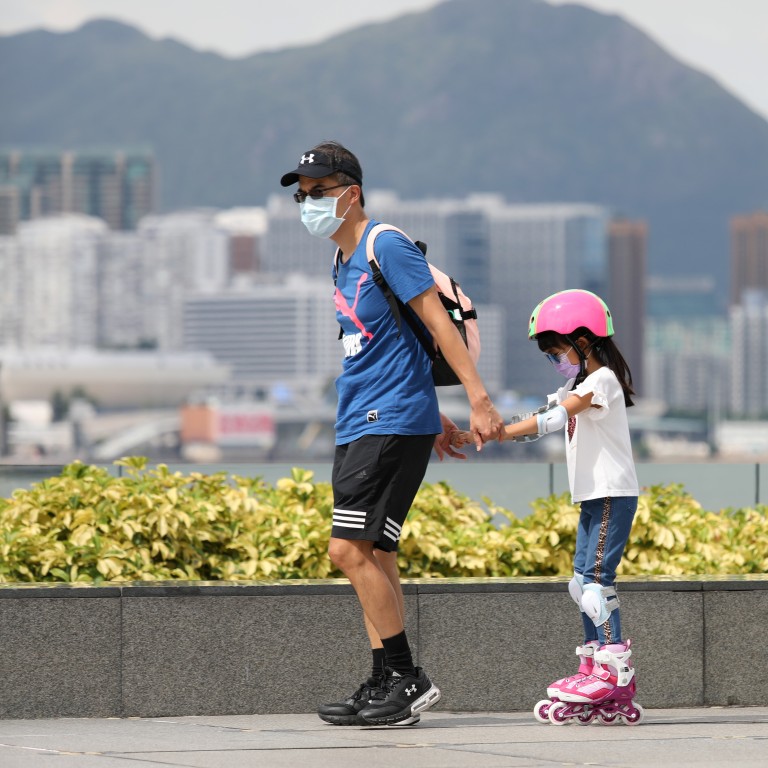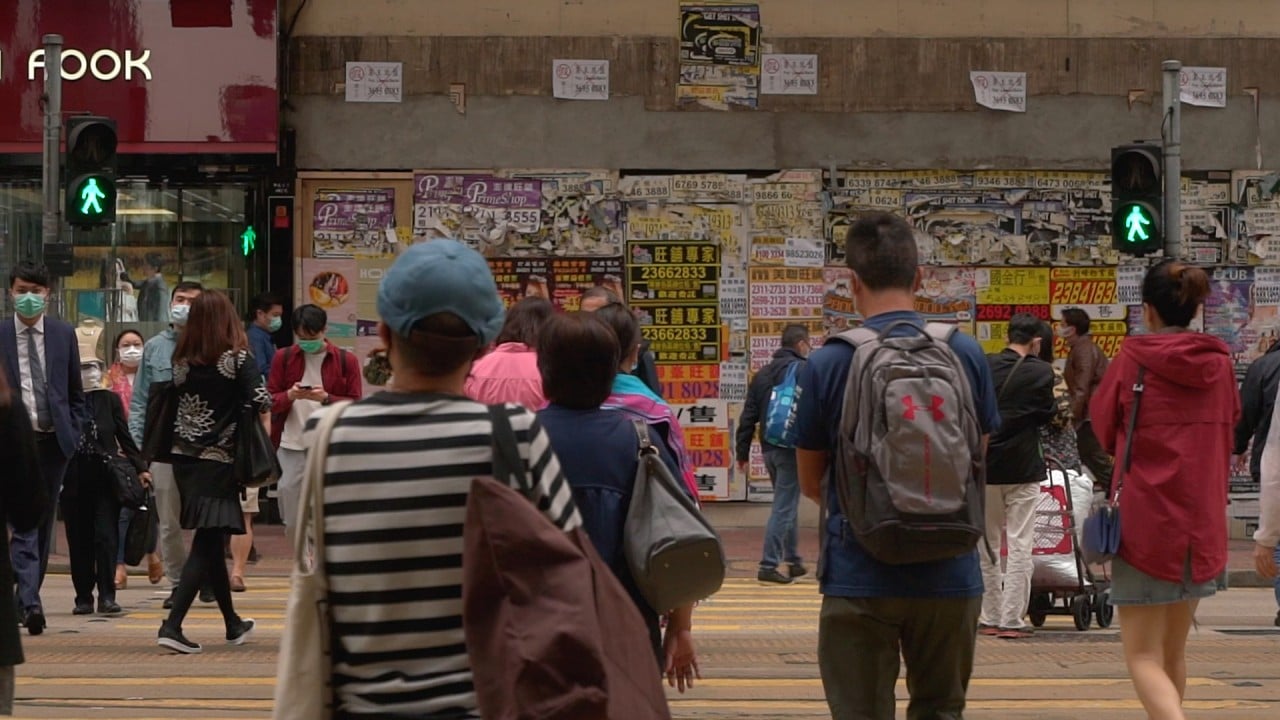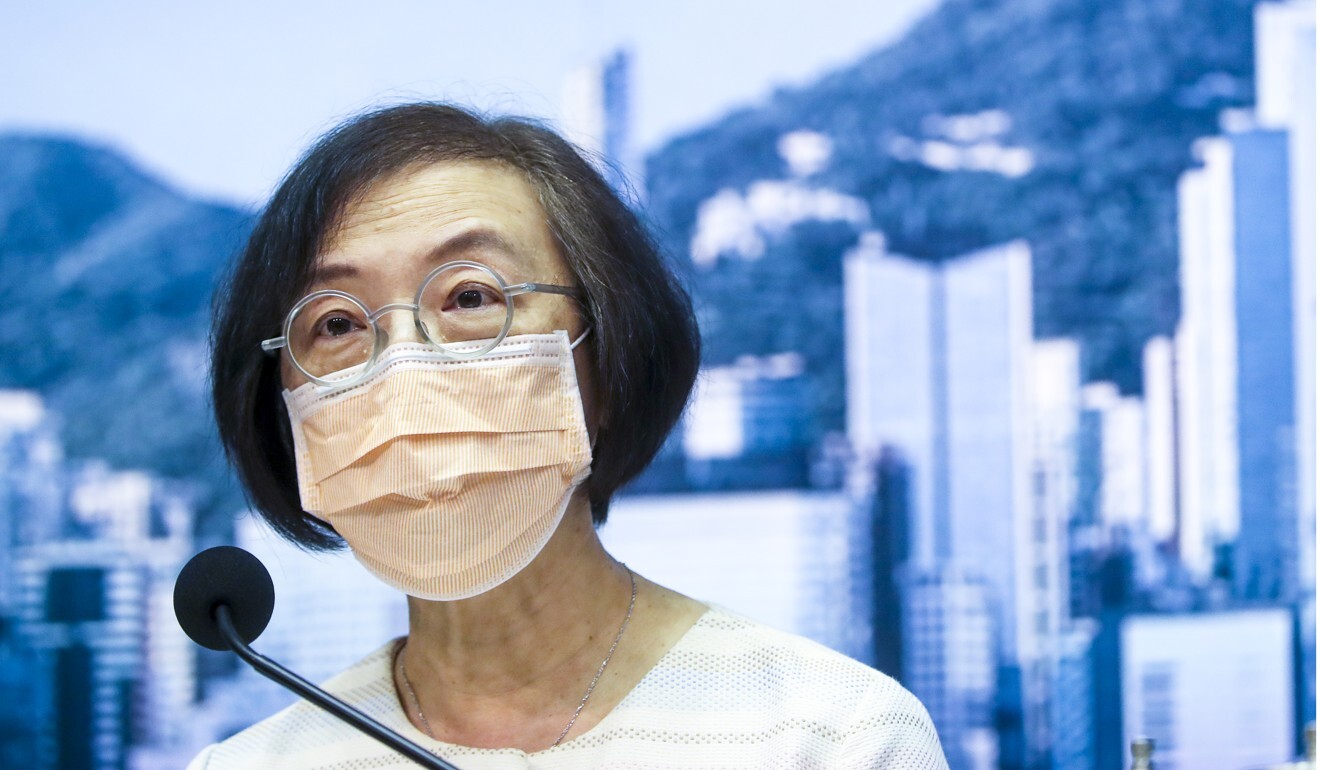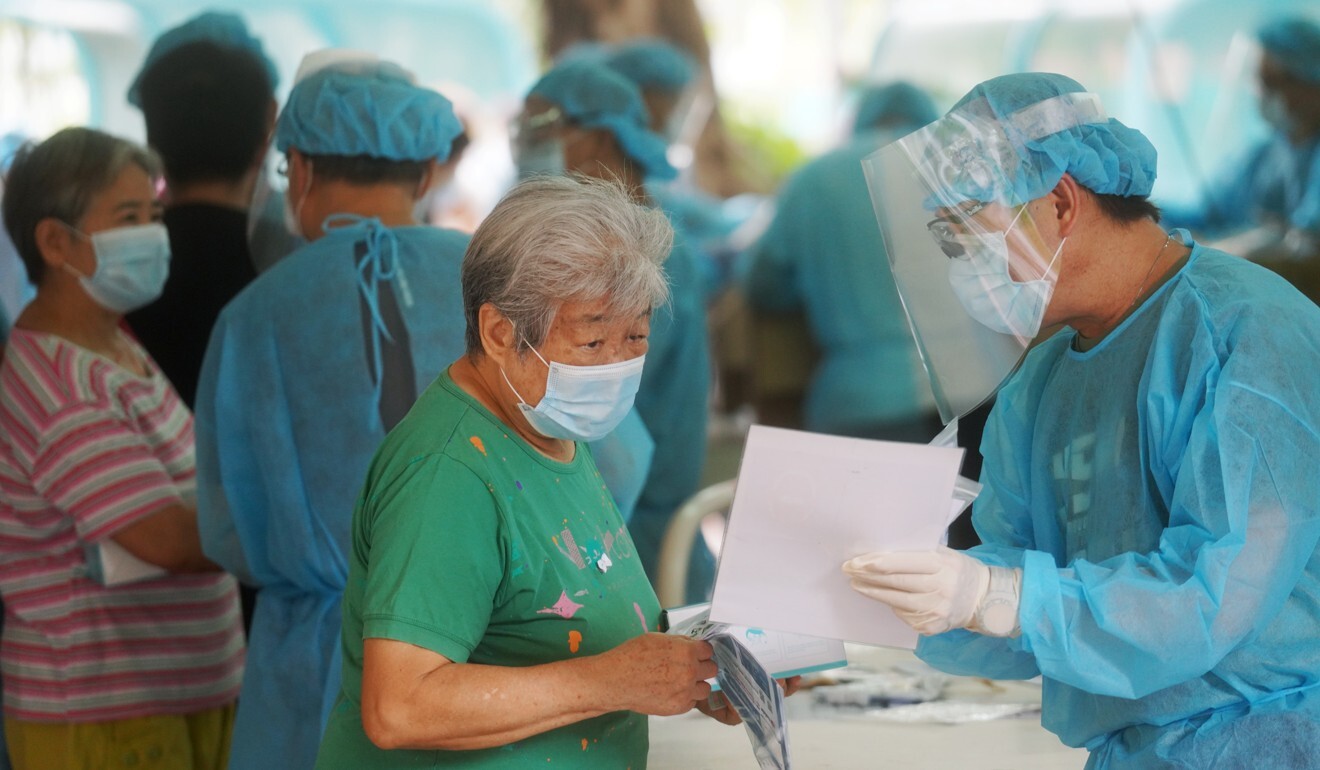
Evening dine-in services to resume, mask requirement for outdoor exercise to end as Hong Kong records 19 new coronavirus cases
- ‘Not possible for us to wait until there are no more local cases before relaxing social-distancing measures,’ health secretary says
- City’s leader takes aim at medical experts and opposition activists, accuses them are playing politics with universal testing programme
The new rules, which allow restaurants to end dine-in services at 9pm rather than 6pm, take effect on Friday.
Secretary for Food and Health Sophia Chan Siu-chee unveiled the decision, saying the number of daily cases had been “gradually declining” while acknowledging the “anti-epidemic fatigue” and socioeconomic needs of people.

03:49
World’s first coronavirus reinfection case confirmed in Hong Kong, a university study reports
“Under the new normal, it is almost not possible for us to wait until there are no more local cases before relaxing social-distancing measures,” she said.
Chan added the government would closely monitor the situation in the next two days, but the rules would be introduced “unless there are drastic changes to the epidemic situation”.
She also stressed the importance of allowing residents to exercise, pointing to the reopening of some outdoor grounds for sports such as tennis, golf, running and archery, and allowing people to go without masks in country parks or when exercising in the open.
But she said other measures – allowing no more than two people to a table in restaurants, and restricting eating and drinking in cinemas – would remain for now.
“I would like to take this opportunity to remind the public not to let down their guard during the fight against Covid-19,” she said, appealing to residents to join the universal testing scheme to detect silent carriers of the virus.
Dr Chuang Shuk-kwan of the Centre for Health Protection (CHP), however, struck a more cautious tone later in the afternoon, as she revealed there were 19 new coronavirus cases, more than double Monday’s tally of nine – the lowest since July 3 – but continuing a streak of more than 20 days with fewer than 100 infections.

The tally of confirmed infections now stands at 4,710. A 71-year-old Covid-19 patient died on Thursday evening, taking the death toll to 78. More than 20 people tested preliminary positive, pending confirmation.
“I think from [a] public health perspective, any relaxation of social-distancing measures may have a risk of spread of the disease,” Chuang said.
“That’s why … please do adopt personal hygiene measures such as wearing masks as much as possible and observe hand hygiene.
“If a group of people go hiking and the physical activities are not that vigorous, I think it’s still better to put on a mask.”
Relax social-distancing rules to save Hong Kong catering, industry leaders say
All but three of the new cases were locally transmitted, with the source of eight not traced. The imported cases involved a seaman from Egypt and two returnees from India on flight AI314, on which more than 20 passengers have been confirmed as infected.
Chuang revealed another emerging cluster at a disabled care home. She said five more residents and a carer at Hong Chi Association at Lei Muk Shue in Kwai Chung had tested preliminary positive for the virus. Other residents would be sent to AsiaWorld-Expo for quarantine.
A more alarming case involved a 19-month-old boy who tested preliminary positive, and may point to the scale of silent transmissions in the community and that the city may not be out of the woods just yet. The child and his family had returned from Pakistan at the end of June and tested negative for Covid-19 multiple times.
The boy went to Hong Kong Children’s Hospital in Kowloon Bay for hernia surgery on Monday, and was only then found to have Covid-19 antibodies, meaning he had been infected with the disease before and had already recovered from it.
He was transferred to Queen Elizabeth Hospital in Yau Ma Tei for further checks. His mother also had antibodies.
The boy was believed to be non-infectious, according to Dr Sara Ho Yuen-ha, the Hospital Authority’s chief manager for patient safety and risk management.
Chuang said he likely caught the virus in the community, and added that the CHP would trace his family members to quarantine and test them.
Coronavirus: South Korea shuts schools in Seoul, braces for health care workers’ strike
“I think there are quite some asymptomatic infections in the community, just like this mother and baby, that’s why we hope that the universal testing can help to find some of them,” she said.
A 46-year-old non-emergency ambulance care assistant in Kowloon West also tested preliminary positive. She last worked on Friday and had not helped transport any Covid-19 patients. A 60-year-old operations assistant at Princess Margaret Hospital in Lai Chi Kok also tested preliminary positive. She last worked on Saturday.

Without naming prominent medical experts who had expressed reservations and said they would not get tested, Lam said some people were acting politically to smear the central government, which had sent workers to help with the testing.
“I will make a strong plea, that well-known people, especially in the relevant professional areas, should really express their view in a more responsible way, since this is about public health, let’s focus on public health,” she said.
Critics have disputed the effectiveness of the scheme – which will see more than 100 booths set up across 18 districts to collect samples from residents for two weeks from September 1 – and raised concerns over biometric data privacy.
Lam also revealed her policy address on October 14 would not include many new measures that required public cash, as the city’s finances were in a “very severe” situation, and the government had to focus on medical services and economic recovery.
In a statement, Sai Kung District Council chairman Chung Kam-lun, representing the opposition in 18 district councils, repeated his camp’s objections to universal testing, saying it could open the door to “manipulative” health codes to surveil Hongkongers, and mainland technicians were not qualified to work in the city.
The CHP’s Chuang and Ho of the Hospital Authority both ducked the question when asked whether they personally would take the test.
Earlier, infectious disease expert Dr Joseph Tsang Kay-yan cautioned that despite the drop to single digits on Monday, social-distancing measures should remain in place until community testing was completed at least.
“The reason is because we don’t know how many hidden cases we might find from the voluntary testing programme,” Tsang said. “If we rush into relaxing the measures, I think the government will find itself in a very awkward position.”
Dutch and Belgian patients also got coronavirus a second time
While Tsang did not think the number of participants would reach 5 million, the capacity estimated by the government, he said the testing drive should be considered successful if 1 to 2 million people took part and he believed at least 100 new cases would be identified from these.
With other new infections emerging from testing various groups, the city would still record up to 20 new Covid-19 cases a day through September.
“We hope that, through the testing scheme, we can find new unknown sources of the virus that we were not able to trace before,” he said.
Tsang also said the number of new infections with unknown sources was still high – about 40 per cent of each day’s cases – and urged the government to step up its contact tracing process.
Additional reporting by Zoe Low


